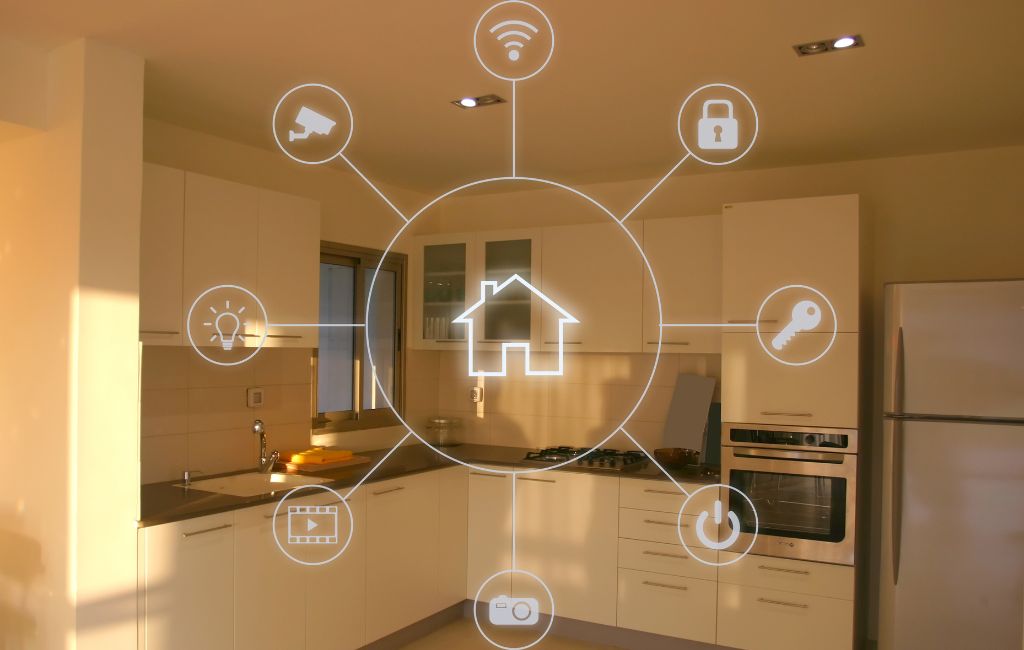In the modern kitchen, the term 'smart ovens and cooking devices' has become synonymous with innovation and convenience. As homeowners and businesses strive to enhance culinary experiences, these devices have emerged as indispensable tools. By integrating cutting-edge technology, they not only simplify cooking but also elevate it to an art form. With the increasing demand for efficiency and precision, smart ovens are reshaping how we approach food preparation. But what exactly makes these devices a staple in contemporary kitchens?

How Smart Ovens Transform the Cooking Experience
At the heart of smart ovens is their ability to connect to the Internet and offer a range of functionalities that traditional ovens simply can't match. Imagine preheating your oven on your way home from work using a smartphone app, or receiving alerts when your dish is perfectly cooked. These ovens can even suggest recipes based on the ingredients you have on hand, making meal planning a breeze.
Beyond convenience, smart ovens are designed with precision in mind. They come equipped with sensors that monitor temperature and humidity levels, ensuring that every dish is cooked to perfection. This level of control allows both amateur cooks and seasoned chefs to experiment with new techniques and recipes without the fear of overcooking or undercooking.
Integrating Smart Cooking Devices in Your Kitchen
For those looking to upgrade their culinary setup, integrating smart cooking devices can be a game-changer. From smart refrigerators that track expiration dates to induction cooktops that adjust heat levels automatically, these devices are designed to work seamlessly together. This interconnected ecosystem not only saves time but also reduces waste, promoting a more sustainable kitchen environment.
Businesses, particularly in the hospitality industry, are also reaping the benefits. Smart appliances can streamline operations in commercial kitchens, allowing for more efficient service and consistent food quality. As a result, restaurants and catering services can enhance customer satisfaction while reducing operational costs.
Challenges and Considerations
Despite their advantages, adopting smart ovens and cooking devices is not without challenges. One of the primary concerns is security. As with any connected device, there is a risk of hacking and data breaches. It's crucial for users to follow best practices for securing their smart home devices, as highlighted in this smart home security guide.
Additionally, the initial cost of these devices can be a barrier for some. However, it's important to consider the long-term savings in energy efficiency and reduced food waste. Moreover, the continuous advancements in technology mean that prices are gradually becoming more accessible.
The Future of Cooking with Smart Technology
As technology continues to evolve, the capabilities of smart ovens and cooking devices will only expand. We can expect to see further integration with artificial intelligence, allowing these devices to learn and adapt to user preferences over time. This personalization will make cooking even more intuitive and enjoyable.
The potential for innovation is vast, and the future of culinary technology is bright. Whether you're a homeowner seeking to simplify your cooking routine or a business aiming to optimize kitchen operations, investing in smart technology is a step towards a more efficient and enjoyable culinary experience.
Practical Tips for Embracing Smart Kitchen Technology
For those interested in incorporating smart technology into their kitchens, starting small can be beneficial. Consider investing in one or two devices initially, such as a smart oven or a connected fridge. This allows you to familiarize yourself with the technology and assess its impact on your cooking habits.
It's also wise to stay informed about the latest developments in smart home technology. Resources like this smart home installation checklist provide valuable insights and tips for getting started.

FAQs
Are smart ovens energy efficient?
Yes, smart ovens are designed to be energy efficient. They often come with features like rapid preheating and precise temperature control, which reduce energy consumption compared to traditional ovens.
Can smart cooking devices be hacked?
While any connected device can be vulnerable to hacking, following security best practices can minimize risks. Ensure your devices have strong passwords and are updated regularly to protect against potential threats.
Do I need special cookware for smart ovens?
Most smart ovens work with standard cookware. However, some features, like induction cooking, may require specific types of pots and pans. It's best to consult the manufacturer's guidelines for compatibility.

